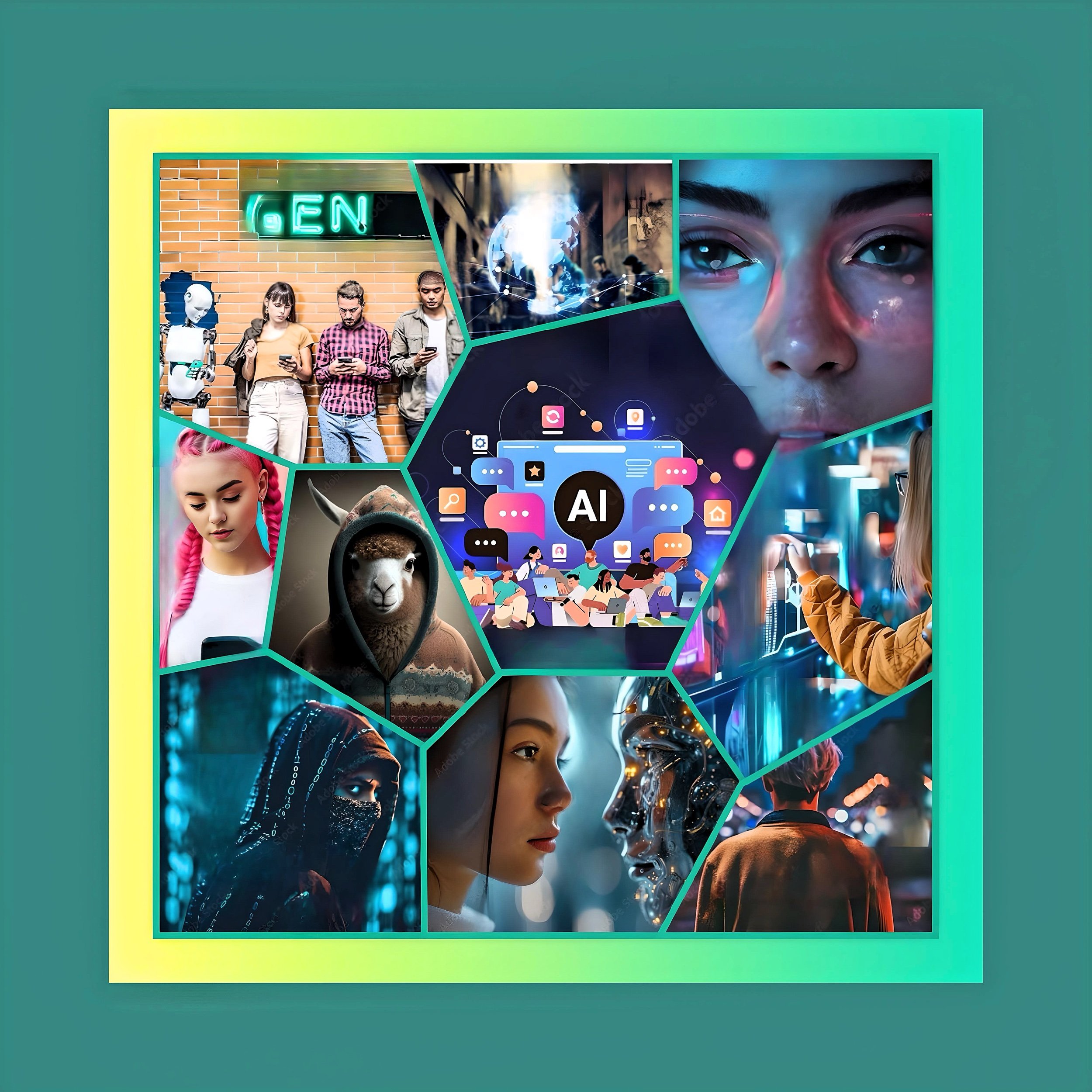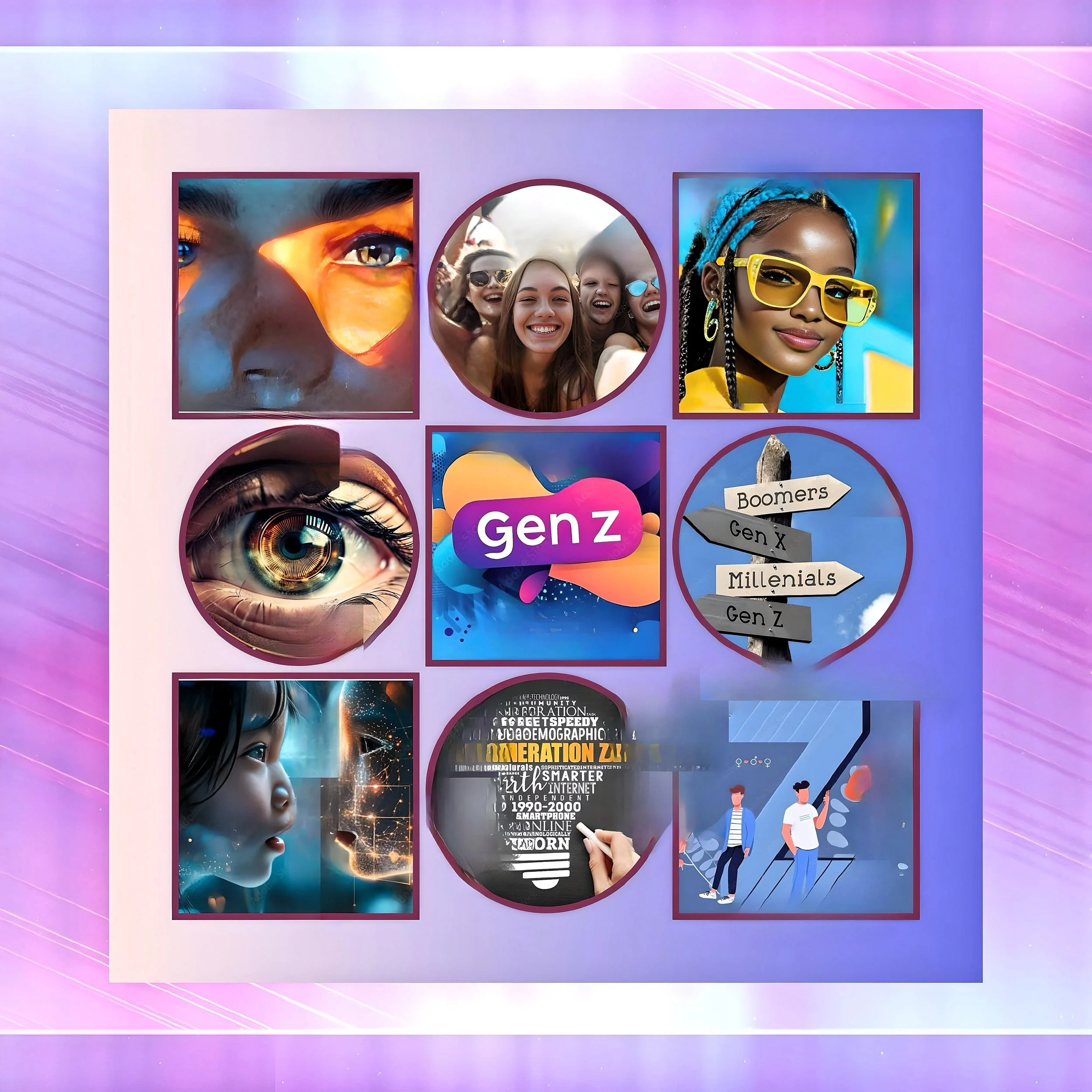Gen-Z approach to AI
Introduction
Generation Z, born between the mid-1990s and early 2010s, has a unique and complex relationship with artificial intelligence (AI) that is shaping the future of work, education, and creativity. As digital natives who have grown up with smart devices and on-demand digital services, Gen Z’s approach to AI is characterized by both enthusiasm and caution.
Embracing AI in the Workplace
Gen Z is at the forefront of AI adoption in professional settings.
93% of Gen Z workers (aged 22-27) use two or more AI tools weekly, such as ChatGPT, DALL-E, and Otter.ai.
66% believe AI enhances their skills, demonstrating confidence in technology’s ability to boost productivity and competence.
47% prefer AI guidance over traditional managerial advice, indicating a shift in how this generation values technology for professional development.
This widespread adoption of AI tools is setting Gen Z apart in the workforce. They are actively utilizing AI to complete tasks more efficiently and produce higher-quality work.
AI in Education and Learning
Gen Z’s approach to AI in education is transforming traditional learning models:
They prefer technology-enhanced learning mechanisms and want to see AI adapted into classrooms rather than banned.
Gen Z favors more self-directed and independent learning, with AI potentially supporting individualized learning strategies and progress tracking.
Many use generative AI to complete schoolwork, spur creativity, and explore hobbies.
However, there are concerns about Gen Z’s critical thinking skills when it comes to AI. A global survey found that while Gen Z is reasonably good at understanding and using AI, they are less confident in evaluating and identifying critical shortfalls with AI systems.
Creativity and Innovation
Gen Z sees AI as a tool for enhancing creativity:
They are pushing the boundaries of what AI can achieve, experimenting with AI in creative industries, education, and social activism.
Gen Z is driving the democratization of AI tools, making them accessible to everyone and contributing to open-source AI projects.
However, authenticity and the preservation of human creativity remain important to Gen Z. Brands using AI must adhere to these values to resonate with this generation.
Challenges and Concerns
Despite their enthusiasm, Gen Z’s approach to AI is not without reservations:
39% of Gen Z workers report decreased interactions with colleagues due to AI, potentially affecting team dynamics and workplace culture.
There are concerns about digital fatigue and online privacy.
Younger workers remain wary of generative AI’s impact on their careers and job security.
Shaping the Future of AI
Gen Z is not merely adapting to AI; they are actively shaping its future:
They are advocating for ethical AI usage, pushing for transparency and accountability in AI development.
Gen Z is using AI to tackle global challenges, from climate change to mental health issues.
Their unique experiences and viewpoints are driving innovation in AI applications across various fields.
Conclusion
Gen Z’s approach will likely play a crucial role in determining how this technology is integrated into society. Their ability to navigate the complexities of AI while maintaining a focus on human creativity and ethical considerations will be key in shaping an AI-driven future that balances technological advancement with human values.





